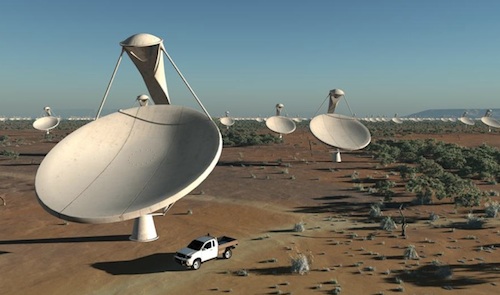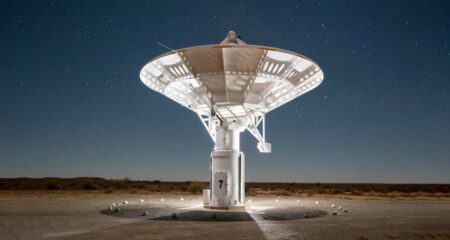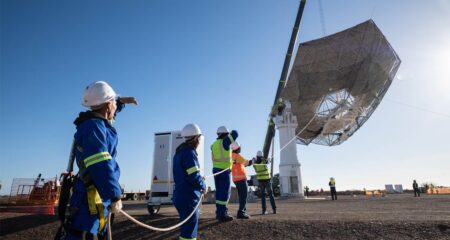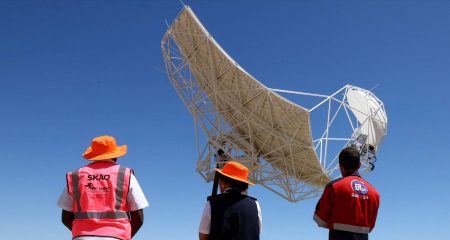Astronomers and funding agencies will next year assess sites in SA and Australia and recommend which one be chosen as the place to build the Square Kilometre Array (SKA), the world’s largest and most technologically advanced telescope, MPs heard on Wednesday.
“Governments will then consider the recommendation and other factors, including costs and political factors, and make a [final] decision in 2012,” SKA project director in SA, Bernie Fanaroff, told the national assembly’s science and technology committee.
The two countries were shortlisted in 2006 as locations for the mega-science project, which will cost about €2bn (R20,5bn) to build, and require between €150m and €200m a year, for 50 years, to maintain and operate.
The radio telescope — the brainchild of a consortium of major international science funding agencies in 16 countries — comprises 3 000 giant antenna dishes, each the height of a three-storey building.
Astronomers plan to use the SKA to peer back through time, across vast distances, to investigate the history of the universe and when the first stars were formed.
The SKA core site proposed in SA is near Carnarvon in the Northern Cape, where many of the dishes would be erected, but the plan also includes locating receiving stations — each comprising about 30 antenna dishes — in eight other African countries, some as far away as Ghana and Madagascar.
The proposed Australian site is at Mileura in central Western Australia. According to the SKA website, “within a single, politically stable environment, Australia offers some of the most radio-quiet locations on Earth”.
Responding to members’ questions, Fanaroff said radio frequency interference was one of the key issues when it came to choosing a site for the SKA.
“If you ask the astronomers, they’ll tell you the most important thing is radio quietness, because they want to look at signals that are coming from the beginning of the universe. You can imagine those signals have been travelling through space for 14bn years … and that means they’re very weak. So the astronomers are saying we want the quietest site on the planet.”
Speaking later to Sapa, he said there were fewer people living in the area around the Australian site than the one in SA, but said the differences in radio quietness between the two were “fairly minor”.
There were other factors to be considered, including cost, he said. Earlier, the committee heard construction costs in SA were about half those in Australia.
Asked if the bid was still wide open, or if some parties had indicated a preference for either of the two countries, Fanaroff responded: “Nobody’s given any commitments at this time — neither the Americans or the Europeans. That’s among the astronomers. What the government agendas are we don’t know. We think it’s open.”
About a third of the funding needed for the SKA will come from Europe, a third from the US, and a third from other countries.
Science and technology director-general Phil Mjwara, told members it was too early to start lobbying for the project, which, should SA be chosen, will see hundreds of millions of euros flowing to local firms for the erection of infrastructure.
He said the country’s “natural advantage” had been made clear to the project’s European backers, in that it was easier to fly from there to SA than to Australia.
Fanaroff suggested the funding country governments were seeking a compromise outcome to the bid contest. “The governments are looking at what they call a win-win situation. They don’t want there to be a loser. Nobody can quite say what a win-win situation is, but what it does imply is that whether we win or lose, we’ll get something,” he said.
The Square Kilometre Array is so named because the combined “collecting area” of the antenna dishes adds up to one square kilometre. The 3 000 dishes are all linked, via fibre-optic cable, to a computer located in the core area.
Among other things, SKA’s backers are hoping it will supply them with answers to many fundamental questions of astronomy, physics and cosmology. “If there is life somewhere else in the Universe, the SKA will
help us find it,” they say. — Sapa
- Subscribe to our free daily newsletter
- Follow us on Twitter or on Facebook





